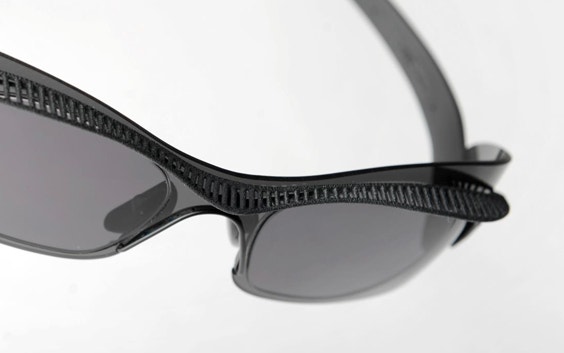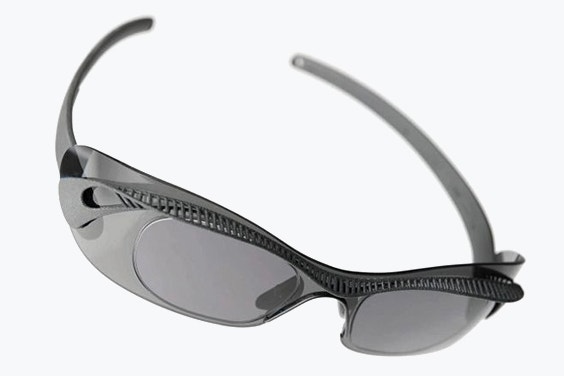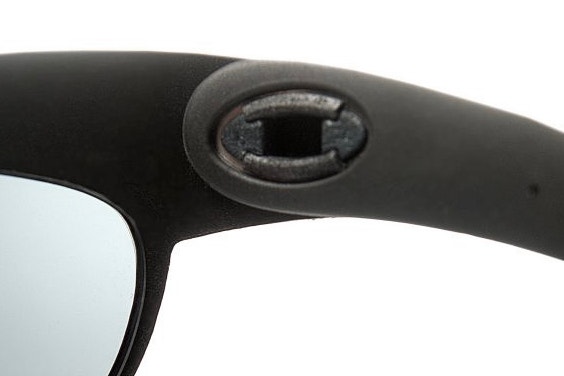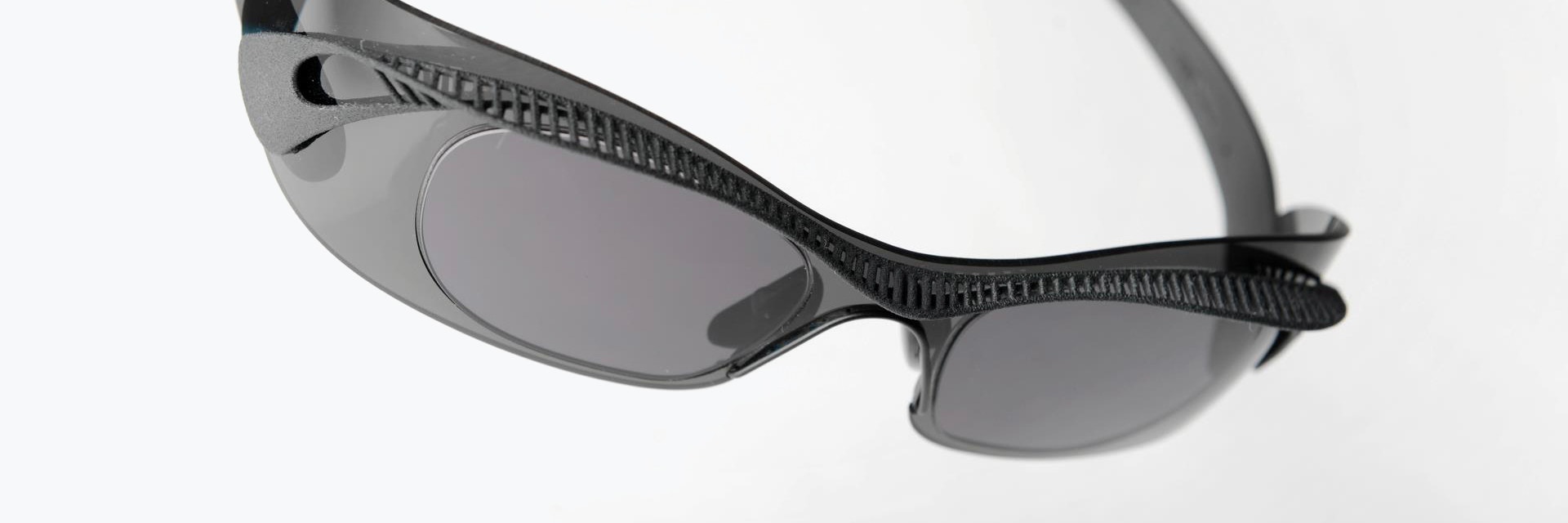CASE STUDY
Manufacturing Designer Eyewear: Hoet Design Studio’s Cabrio Collection

Hoet Design Studio’s eyewear is born out of the desire to create a timeless design that is both classic and modern. What better way to do that than to take the ageless art of eyewear design and manufacturing into the dynamic, forward-looking world of 3D printing? With this philosophy, Materialise and Hoet Design Studio have entered a collaboration for the Cabrio collection.
The 3D-printed Cabrio collection, launched in Milan at MIDO2015, presents the added value of 3D printing in the eyewear scene. The collection aims to achieve aesthetic ideals while also considering physiological compatibility and performance requirements.
3D printing offers design freedom beyond the capability of conventional manufacturing and allows the Cabrio collection to feature small, complex geometries as well as a cellulose-like porous structure that results in an organic look and feel. Behind this collection is a symbiotic process of co-creation and Materialise’s contribution to luxury, consumer-grade product manufacturing.


Collaborative creation
This is a project that takes co-creation to heart by building on the core competencies of both partners. Hoet brought the philosophy behind this design and its extensive expertise in the eyewear market. To Hoet, eyewear in the Cabrio collection is not merely an accessory but an artistic expression for the wearer.
Spectacles don’t just change the way you see the world; they also change the way the world sees you. For Materialise, the goal while producing the frames is to find the ideal balance between the interaction of material properties, process parameters, and technical design parameters. With this, Materialise hopes to achieve the best performance in appearance and functionality of the end product.
Certified manufacturing
Following the design stage, the production process presented initial challenges to overcome before manufacturing could begin. The key requirements of repeatability and consistency, absolutely critical to manufacturing series, call for different considerations in 3D printing and specialized automation and control software. Therefore, we put our software program Materialise Streamics to the task of tracking and tracing every manufacturing step that each set of eyewear frames must undergo.
The manufacturing team worked to minimize variance and fine-tune tolerances of the 3D printing technology through a series of steps, beginning with the dedication of some machines to the sole purpose of printing eyewear. Now Materialise has designated machines that are tuned specifically for 3D printing eyewear frames. The manufacturing team also succeeded in honing the tolerances of the technology to a point that surpasses the expectations in the highly discerning eyewear sector.
Finishing processes
Eyeglasses may have been worn for centuries, but 3D printing brings them firmly into the 21st century with an inimitably modern appeal. In keeping with this feature, Hoet requested a special finishing of matte black with an organic look through special treatment of the surface structure of the 3D-printed glasses to set the collection apart from conventionally manufactured eyewear.


Looking ahead
This collaboration with Hoet catapults Materialise into the role of a manufacturer of luxury consumer-grade products and opens up a whole new world of manufacturing and finishing processes on the very edge of 3D printing technology. As always, the team at Materialise is consistently striving to broaden the portfolio to meet diverse needs and to understand the audience’s developing expectations from a high-end company like Hoet. The next range of designs, with added variety, will be launched in September 2015 at the Silmo optical fair in Paris.
All photos by Negin Sadeghi
Share on:
This case study in a few words
Hoet Design Studio
Eyewear
3D printing
Design freedom
